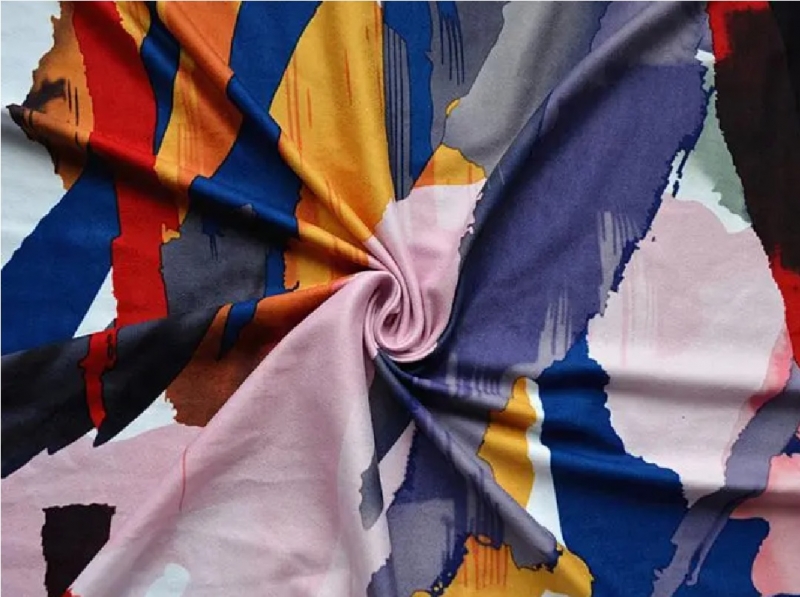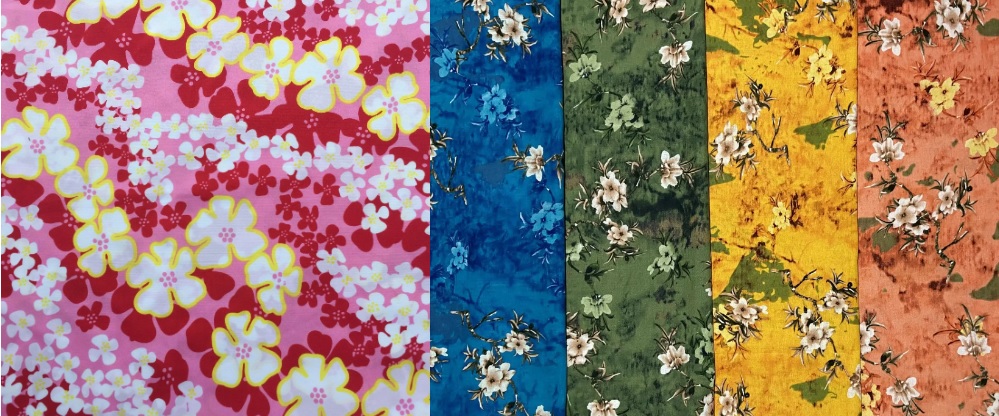
Why sodium alginate is the best printing paste?
Sodium alginate is used as a reactive dye paste in the printing and dyeing industry, which is superior to grain starch and other pastes. The printed textiles have bright patterns, clear lines, high color yield, uniform color yield, good permeability and plasticity. Sodium alginate printing paste is the best slurry for modern printing and dyeing industry, and it has been widely used in the printing of various fabrics such as cotton, wool, silk, nylon, etc., especially for the preparation of dyeing printing paste. At present sodium alginate is the best printing paste in textile industry.
(1) The pigment of sodium alginate itself is relatively light, and has no direct pigment to the fiber. It can be washed off in the conventional washing process after printing, and the depaste rate is excellent. Therefore, the printed product feels excellent, and can also be used accordingly. Save the softening process and the amount of softener used.
(2) Sodium alginate raw paste has good chemical compatibility, which is less affected by general organic acids, alkaline agents, weak oxidizing agents and reducing agents. When the pH is 5.8-11, the chemical properties are relatively stable. It has good compatibility with various other pastes and can be used together. Sodium alginate solution is negative, it has repellency with the water-soluble group SO3- of reactive dyes, and does not interact with reactive dyes, making sodium alginate an ideal paste for reactive dye printing.
(3) The color paste made of sodium alginate has good permeability, and there are few insoluble colloids and impurities in high-quality seaweed, so it is not easy to cause network blockage during the printing process, and under the force exerted by the scraper, the dye can easily go through the printing screen, the dyestuffs are passed through and penetrate into the fabric, printing a complete and uniform pattern, with good level dyeing and uniform color yield. In addition, because it does not stick to printing tools and fabrics, it can avoid the disadvantages of dragging and scratching due to sticking to knife edges, dragging due to sticking to nets, and difficulty in desizing due to sticking to fabrics.

(4) Sodium alginate has strong hygroscopicity. In reactive printing, the transfer and diffusion of dyes to the inside of the fiber is accomplished by steaming, which is directly related to the amount of water absorbed. The higher the hygroscopicity of the paste and the greater the degree of fiber expansion, the better the printing and coloring effect. In addition, sodium alginate has good water-holding properties, which can effectively absorb excess water when printing is steamed and fixed, reduce the free movement of water in the paste, prevent the phenomenon of seepage at the pattern, and ensure the outline of the pattern Clear, reduce defective products, improve printing effect.
(5) Sodium alginate paste is not only suitable for cotton fiber printing, but also for wool, silk and synthetic fiber printing. Sodium alginate has a wide viscosity range, which can be applied to the requirements of screen printing (such as rotary screen printing and flat screen printing) to roller printing paste. The color paste does not undergo coagulation and hydrolysis, has good electrolyte resistance, and has strong carrying capacity, so that the dye can be fixed on the fiber through various functions, and the color fastness is good.
Shandong Jiejing Group Corporation has specialized in the production of sodium alginate for more than 50 years. It is in a leading position in the industry and has a complete industrial system integrating production, research and development, and quality. It is the single champion of the industrial grade sodium alginate.
According to different printing types, fabric characteristics and product requirements, we have developed series of high-end printing pastes including reactive printing, dispersion printing, imitation wax printing and digital printing, which can meet customers' needs for printing and dyeing grade sodium alginate products.
